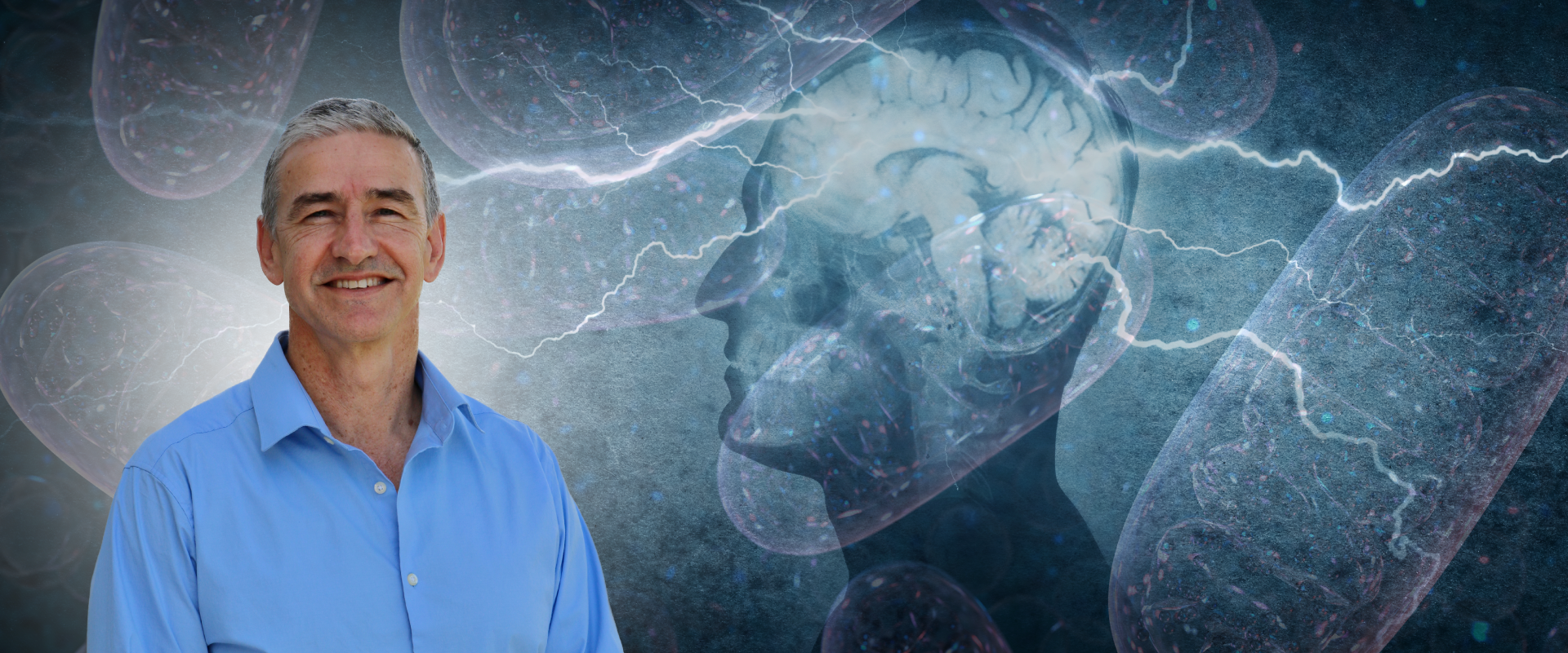By Shavantay Minnis
Studying how mitochondria support neurons could help Gregory Macleod, Ph.D., shed light on the mysteries surrounding neurodegenerative diseases.
Macleod, a professor in the Harriet L. Wilkes Honors College, and a member of the Institute for Human Health and Disease Intervention, recently earned a five-year $1.8 million award from the National Institutes of Health to study how mitochondria — the powerhouses of a cell — support neuron function.
His research goal is to collect information that might be leveraged for therapeutic approaches to neurodegenerative diseases. “Mitochondria keep popping up as ‘persons of interest’ in neurodegenerative diseases,” Macleod said. “And, although ours is basic research, it’s needed to build on our understanding of what is already known about mitochondria and neurons.”
Working with Drosophila, a tiny fruit fly, Macleod examines genes and the effects of their mutations on mitochondrial movement inside neurons. Mitochondrial movement is critical to a neuron’s health, so when they cease movement, it disrupts neuron function leading to various disorders, such as Lou Gehrig’s disease.
Macleod’s approach includes inserting or removing genes from the fly to determine which gene and which mutation is responsible for problems with mitochondrial movement, he said. A process assisted by a dozen graduate and
undergraduate students.
“At the moment, we are examining 25 different genes because of their association with mitochondria and the plasma membrane, as we suspect that a number of them might be involved in arresting mitochondrial movement,” he said.
“Beyond mitochondrial movement, we are also interested in the role of mitochondria in the synthesis of the major excitatory neurotransmitter in the brain;
glutamate,” said Macleod, who is also a member in the FAU Stiles-Nicholson Brain Institute. “The synthesis of neurotransmitters is one of those overlooked facets of mitochondrial function that might yet explain the association between mitochondrial dysfunction and neurodegenerative disease,” he said.
For his work on glutamate, Macleod and his team introduce engineered genes into the fly, which produce fluorescent proteins sensitive to glutamate. They can then As glutamate levels increase in neurons, the fluorescent proteins become brighter. These measurements allow them to calculate how much energy the mitochondria spend making neurotransmitters, and also provide a benchmark level against which they can test for contributions from different genes towards matching glutamate levels with the demands of neurotransmission. “Neurons need to manage this process carefully as the release of excess glutamate will overexcite neighboring neurons, possibly leading to their death,” he said.
Through the Max Planck Florida Institute for Neuroscience, Macleod has access to cutting-edge expertise in electron microscopy. The microscopes use electrons to capture images of biological materials giving unparalleled resolution of neurons and their mitochondria.
“They’ve given us a lot of assistance, and if it wasn’t for their help collecting data, we wouldn’t have been successful at landing our recent grant,” Macleod said.
Max Planck is also one of the reasons Macleod says he came to FAU eight years ago. Previously he’ was an assistant professor at the University of Texas Health Science Center in San Antonio.
“I’m excited about the opportunity to collaborate with researchers of this caliber, and to continue learning new methods that help us understand the pathology of diseases,” Macleod said.
